BY NANCY HILLER
Although American Futons has been in business at 105 S. Walnut only since December 2010, the company, which sells handmade futons, wooden futon frames, custom-sewn decorative covers, and matching accessories, has a history in Bloomington going back more than 30 years.
The store’s owner, Shyaam Akasha, began making futons in 1978. Her motivation: After years of lower back pain, she had spent just one night on a friend’s futon and awakened to find her backache gone.
A futon, Akasha explains, is a traditional form of Japanese bedding consisting of a padded mattress pliable enough to be folded or rolled up for storage when not in use. It’s the futon’s firm support that makes it a boon to many backache sufferers, but its convenient ability to double as a couch has also made it popular among those with limited space.
From the start, Akasha has sewn her futons entirely by hand from layers of pure cotton batting covered in upholstery-weight cotton. By the mid-80s, her business had grown to nearly 20 employees, and she had retail outlets in West Lafayette, Indianapolis, and Cincinnati. She seriously considered mechanizing production to cut labor costs and increase output. Switching from hand-sewing to commercial manufacturing equipment would have required a huge financial investment—not only in machinery, but also space. More important, she realized that most of her employees, with families to support, could not afford to lose their jobs. In the end, she opted “to invest in people, instead of machines,” she says.
After downsizing gradually in the ’90s, Akasha closed her Bloomington store in 1998 to complete a B.A. in Alternative Healing through IU’s Individualized Major Program. In 2002 she earned a Doctor of Naturopathy from the Clayton College of Natural Health in Birmingham, Alabama. Since then, she has operated American Futons by herself, in conjunction with her naturopathic practice.
Despite being handmade, Akasha’s futons are affordable (a double-bed mattress is $250 for the thickest grade of filling) and sewing by hand allows her the flexibility to make unconventional sizes—for example, to fit antique beds. She also offers custom sizes in futon frames, with three distinct ranges, two of them locally made.


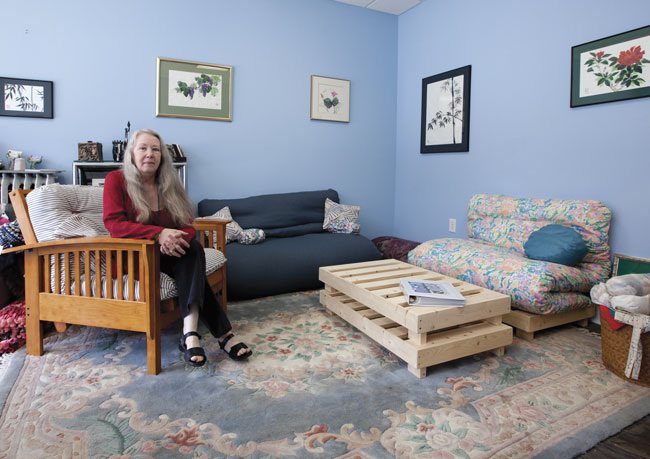
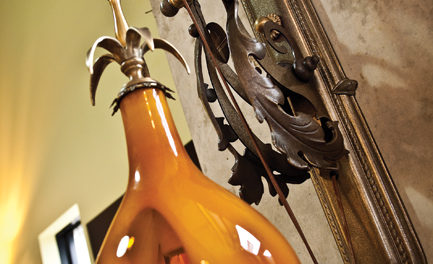
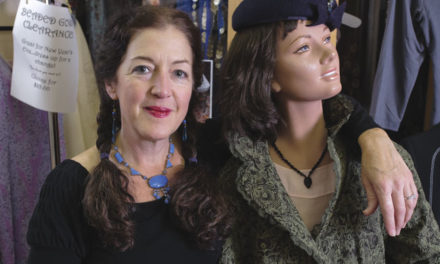
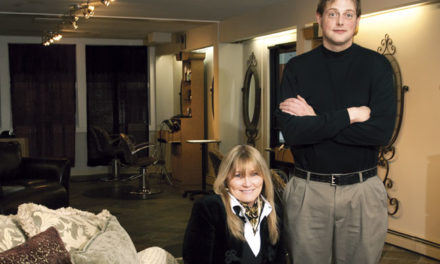
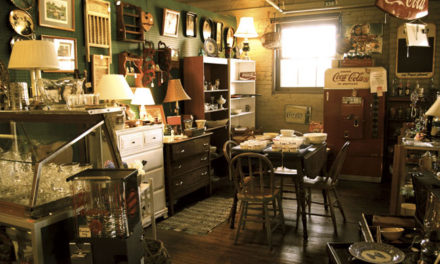





I am so happy to see you are back in business again. I purchased one of your futons in 1993 and absolutely loved it. I am looking forward to getting a new one from you. I know it will be wonderful.
I would love to have a handmade futon with the batting denser in the chest and hip area in a twin size? and do you make comforter and pillows also?
So they do custom futons? Because I was wondering about the price to have them make a custom futon frame for me.